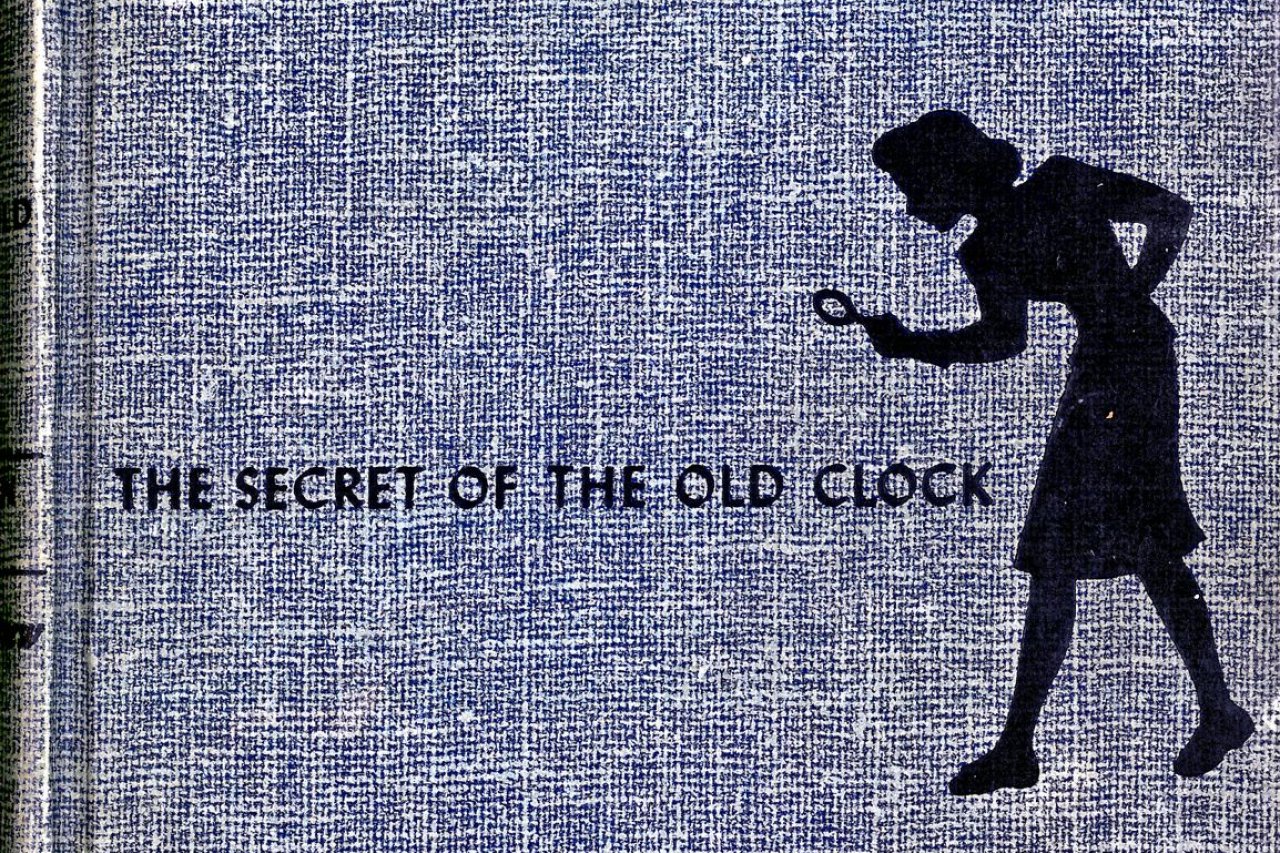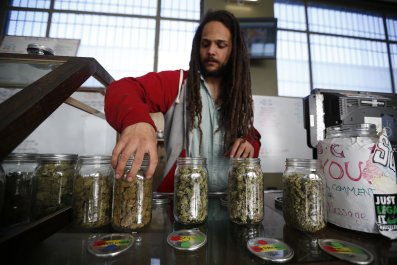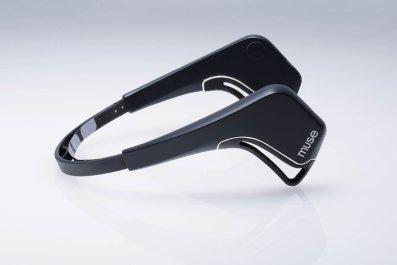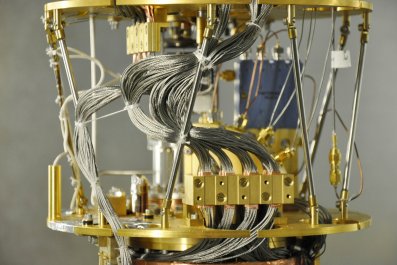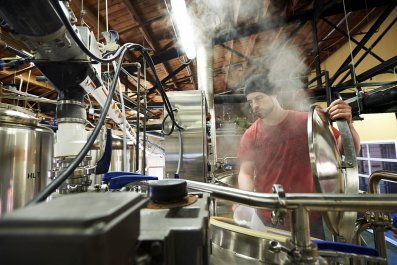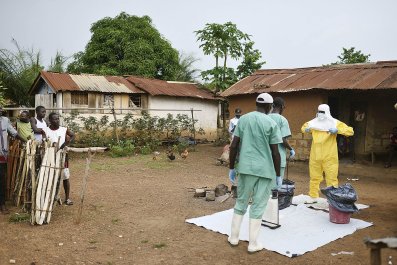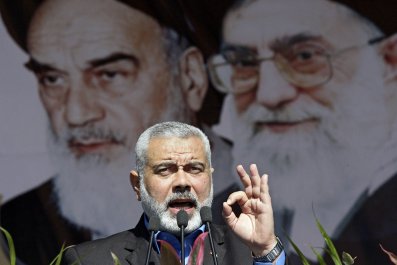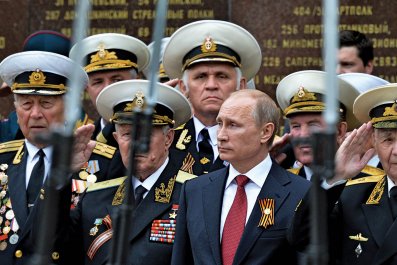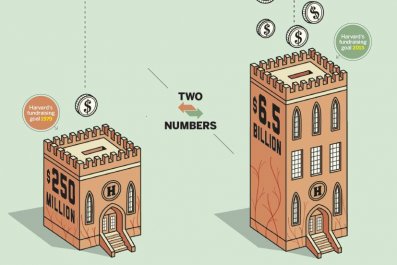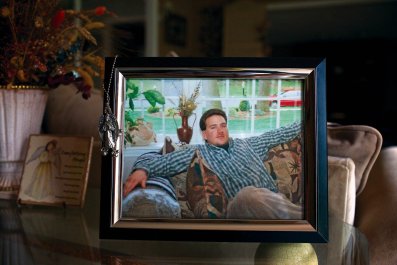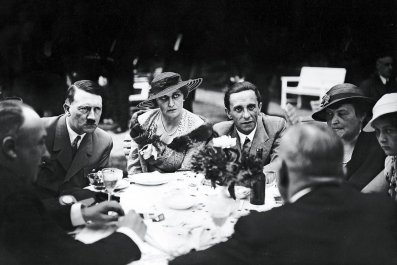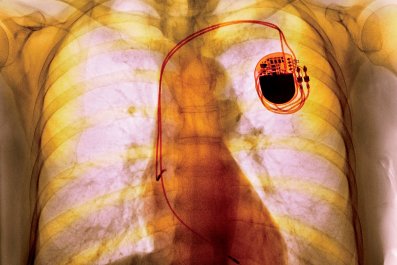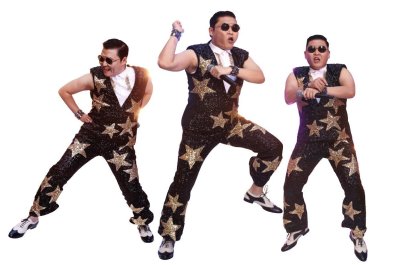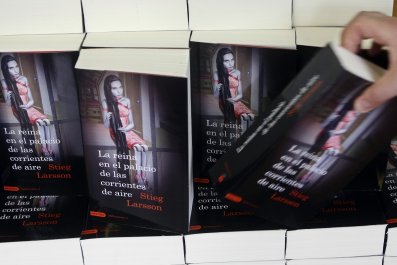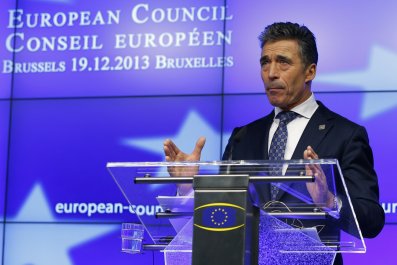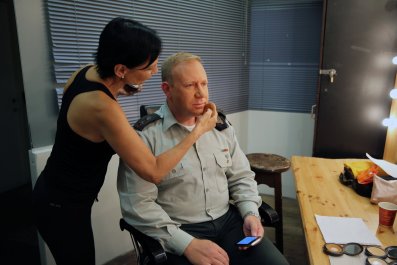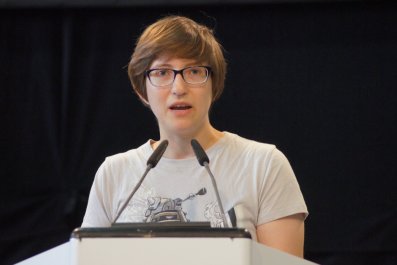For Jenine McKay, motherhood was the happy ending to a fairy tale that never actually happened.
A few years ago, the then-39-year-old London-based events planner found herself suddenly single and desperate for a baby. Her live-in relationship of 15 years had fallen apart mainly because of her self-described "intense desire to be a mother" and her then-partner's "inability to commit to being a father". Heart-broken, disappointed and on her own, McKay did not opt to curl up in bed with a pint of ice cream. Instead, at the urging of her supportive father, she went directly to her gynaecologist to find out if she was still fertile. After checking her hormone levels, ovaries and egg reserve through a simple series of blood tests (which all turned out to be in good shape for her age), her doctor informed her that she was an excellent candidate for egg freezing. So McKay booked an appointment at the Centre for Reproductive and Genetic Health, one of London's many private fertility clinics, and after several weeks of consultations and hormone treatment, found herself in receipt of eleven large, healthy oocytes – the medical term for unfertilised eggs – which were then flash frozen by the clinic using a process called "vitrification" that replaces the egg fluid with antifreeze. The whole procedure cost her roughly £5,000.
For the next three years, the clinic kept her eggs on ice and McKay simply went on living her life – dating, travelling and running her business as usual. When, at the age of 42, she still hadn't met a new partner, she decided to start shopping for sperm instead. "I'm a very practical sort of person," she says, "and I was damned if I was going to end up one of those wistful middle aged women saying, 'Oooh, I wish I'd had a baby when I had the chance'."
The staff at her fertility clinic directed her to a Spanish-owned website she describes as "the Guardian Soulmates of sperm donors". For weeks, McKay browsed through hundreds of donors before settling on an American-born sperm donor of Scandinavian and American parentage. A married, university-educated professional with a child of his own, he was tall, blonde, blue-eyed and athletic, just like her. His medical history on both sides of his family was excellent. And, most crucially for McKay, he was an "open donor", who had given his sperm for altruistic reasons (he'd had friends who suffered infertility and conceived through donor sperm). This "open donor" status meant he was happy to be contacted by any future children once they turned 18 years of age. Just like that, McKay had found her biological baby daddy. It was a strange process, she admits, but also a refreshingly straight-forward one.
"In an odd way I feel like I learned more crucial information about my donor on that website than I learned about my former partner in 15 years. For one thing, he kept his promise to father a child."
She bought the maximum number of units of her donor's frozen sperm that she was allowed (European law stipulates any sperm donor can father no more than 10 children) and had the semen shipped to London. Price tag: roughly £3,000.
Once the doctors had thawed and fertilised several of McKay's eggs with the donor sperm, she had one course of in vitro-fertilisation which worked on the first round. At the age of 42 she was officially pregnant with her own 39-year-old egg. The three remaining fertilised embryos – potential future siblings for her future child – were put back in the deep freeze for safe-keeping. In the end, the entire treatment including IVF, eggs, sperm and storage cost her roughly £20,000.
It was money she doesn't regret spending. McKay is now the mother of chubby, vocal two-month-old named Maximillion. She is also just one of the growing number of British and European women who are using the controversial-but-improving technology of egg freezing to open up their window of fertility and beat the ever-ticking biological clock. For McKay, the decision to take control of her reproductive life with all the means available to her was the single most important choice she's ever made. "Maybe it's a cliché," she says, "now that my son is here I really do feel like my life is complete."
According to the UK's Human Fertilisation and Embryology Authority (HFEA) – a statutory body that regulates and collects data from the country's fertility clinics – there has been a marked rise in a number of women seeking to freeze their eggs for so-called "social" reasons (as opposed to medical reasons such as cancer treatment, which can result in infertility) in recent years.
All the British fertility specialists I spoke to for this piece reported that they had seen a significant rise in demand for the treatment, and the latest official numbers from HFEA confirm this. In America, numbers are similarly rising with many fertility clinics reporting that their caseloads for egg freezing has doubled in the last two years.
In 2012 in Britain, 580 women froze their eggs, up from 284 in 2009. And this number does not even account for the many British women who are now travelling abroad to seek cheaper treatment in places like Spain and South Africa.
While the overall numbers are still relatively low, many who undergo treatment rave about the benefits – both physical (the potential to carry a child later in life) as well as emotional (the allaying of biological anxiety). In fact, according to a Belgian study published last summer, women who freeze eggs report they are overwhelmingly happy with the result. Of 140 Belgian women surveyed who froze their eggs for social reasons, 95% said they would do so again and 70% said they would do so at a younger age.
But is the "reproductive insurance policy" of egg freezing really all it's cracked up to be? A vocal minority of experts in the field say, "No". Lord Robert Winston, a fertility specialist and BBC presenter, insists that egg freezing is "a confidence trick" that allows greedy private fertility clinics to prey on the hopes of anxious, desperate women. "Women are spending vast amount of money on this treatment but the success rates simply aren't there. In fact less than 10% of the women who do it end up getting pregnant."
Indeed, recent numbers released by the HFEA confirm that just 21 frozen-egg babies were born in the UK as a result of 253 fertility cycles between 1991 and 2012 – a dismal overall success rate of just 8%.
But it's important to remember that those numbers take into account the early years of egg freezing, when the procedure was purely experimental. "When it first started in 1986, egg freezing was spectacularly unsuccessful," says Dr Gillian Lockwood, a fertility specialist at Midland Fertility Services in the UK, which has seen seven frozen-egg babies born to patients in the recent years. But today, she points out, the success rates have risen substantially because of vitrification, a process that essentially protects the "shell" of the egg by replacing egg fluid with anti-freeze, thus ensuring the fluid doesn't expand when frozen, causing the egg to crack. Spain, Europe's leading country in fertility technology and treatment, has become a destination for women trying to get pregnant with donor eggs. Today, almost half of the donor egg cycles in Europe are done there. According to Lockwood, her Spanish colleagues are increasingly using vitrified eggs from frozen egg banks for donor patients, rather than fresh, and increasingly they are finding the results are exactly the same.
The difference, of course, is that most frozen donor eggs are young (usually under 35) at the point of vitrification. In the real world, women tend not to seek out social egg freezing until it's already late in the game and their options are running out. In fact, the ideal time for a woman to freeze her eggs is in her late teens or twenties, a time when her eggs are plentiful and hardy, but also a moment in a young woman's life when she is least likely to be obsessing about motherhood.
"I have a half-serious joke that in the future every doting father's university graduation gift to his daughter will be a round of egg-freezing," Lockwood chuckles. But she's quite serious. "We know on current models that a third of all women who have a tertiary education are going to end up being voluntarily childless." In other words, they simply run out of time in which to make the choice and allow nature to take its course. "Egg-freezing provides a very good chance of healthy genetic motherhood for those women into their forties without facing the horror of repeated miscarriage, which tends to occur because of age and poor egg quality."
Lockwood believes much of the resistance she sees toward egg freezing among conservatives like Lord Winston within her profession, is "essentially a misogynist view".
"I do believe egg freezing is a feminist issue," she says. "It was the same reaction when the Pill was introduced, we were told it would destroy family life as we know it. The fact is, there will always be some men out there who hate the idea of women having the same biological freedoms that they have."
The notion of egg-freezing as it relates to the broader so-called "fertility crisis" is the subject of a new play by National Theatre playwright, Jemma Kennedy.Kennedy, who is currently 42, did a round of egg-freezing when she was 39 only to find out that her egg-reserve (meaning the number of viable eggs left in her fertility basket) was uncommonly low. After spending £4,000 at a private London clinic, she ended up with just three frozen eggs, which are currently being stored for future use. While Kennedy is currently in a long-term relationship with a partner who does not want more children (he has a daughter from a previous relationship), she felt that she needed more time to decide whether she wanted to stay in her relationship or become a mother on her own. Most importantly, she does not want to allow biology to make the decision for her.
Since being commissioned to write her play (which won't be staged until next year), Kennedy has spoken to dozens of women undergoing fertility treatment in their late 30s and 40s and concluded that egg freezing in particular "is about relationships, power and control. Increasingly there is a sense among women, that we use technology to defy biology in every other area of life, so why not this one too?"
But the fact of the matter is, for Kennedy, biology will likely win out. Given that she has only three eggs (some of which may not be viable when it comes to doing IVF), Kennedy has been told by her fertility doctor that her chances of ever becoming a mother by this method is only about 5%. She says that, while in some ways she wishes she'd taken the initiative sooner, in another way the experience has served its purpose, which for her was a sense of exerting control over her own biological experience. "Now I've got these three little chances sitting there waiting for me. It's the potentiality that you're buying really."
On the other end of the spectrum is Sarah Richards, author of the recent book Motherhood, Rescheduled: The New Frontier of Egg Freezing and the Women Who Tried It. Like Kennedy, Richards is in her early 40s, but her biological insurance policy is far more likely to pay out. When Richards was in her mid-30s, she found herself in a relationship with a man who didn't share her desire for children. As they negotiated the issue as a couple, they also decided to buy themselves some time. At the relatively young age of 36, Richards had her first round of eggs frozen. It was a success and, crucially, bought the couple more time. They shared the cost as a couple and both enjoyed the feeling that a decision had been deferred – if not put off for good.
However, egg-freezing isn't foolproof and Richards was sure she wanted children. After years of painful negotiations (for several months the couple actually had weekly "summit meetings" in which they would read books on parenthood and discuss the potential pros and cons of having children), Richards and her partner finally broke up. Now she was single and 38, with a basket full of eggs in the freezer. But Richards wanted more assurance than that. Since freezing her first batch of eggs in New York she'd been following developments in reproductive technology and had learned of the new fast-freeze/fast-thaw method of vitrification – her first batch of eggs, frozen in 2006, would have to be thawed as they were frozen, i.e. in the much-riskier non-vitrified method.
Given her age, Richards realised that time really was of the essence. With the financial help of her parents she travelled several times to Montreal, Canada, where she underwent three successive rounds of egg extraction and freezing (the cost, including her travel and accommodations, were cheaper than having the procedure done in Manhattan).
Today, after spending roughly $50,000 Richards has 20 eggs on ice. Each of her eggs has about a 30—40% chance of being viable upon thawing, which means that given the good quantity and quality of her eggs Richards has a very good chance of becoming a mother should she choose it. She is also comforted by the added precaution of storing her frozen eggs in two different countries – in case disaster strikes.
"When you first start freezing you feel a lot of relief. There's all this tension and anxiety that suddenly dissipates because, while you still have to ultimately make the decision, the deadline has been lifted. For me, it made me really get in touch with how much I wanted kids. But it was also great for dating. I could suddenly be relaxed and confident at the prospect of a future family. It felt amazing to go out for dinner with a guy and have him ask me if I wanted kids and to shrug my shoulders and say, 'Sure, some day', instead of feeling total panic."
In addition to detailing the scientific details of egg-freezing, Richards' book tells the stories of five different women who all have the procedure done for different reasons. Egg-freezing has long been done for medical reasons like cancer treatment, but women are seeking the treatment out for personal moral reasons. For some religious groups, IVF has always been a troublesome ethical issue because in most standard procedures, a number of eggs are fertilised at once and the excess embryos are either frozen or discarded. For those who believe that life begins at the moment of fertilisation, this can be deeply troubling. Egg-freezing allows doctors to isolate and fertilise only specific oocytes so excess embryos aren't wasted. According the Lockwood, it is the most common reason for egg-freezing at her clinic.
Dr Peter Bowen Simpkins, a fertility specialist at the London Women's Clinic, said another reason egg-freezing is on the rise at his clinic is because of their egg-sharing programme, which he has been running for several years. This gives women under the age of 35 undergoing treatment a chance to share their eggs by donating to the clinic's egg bank – much like donor sperm banks, in which donors contribute sperm for altruistic reasons. The London Women's Clinic offers a subsidised treatment rate for women who contribute to the egg-sharing programme.
As the technology improves and success rates of frozen-egg pregnancies continue to rise, it makes sense that more and more women will take advantage of the treatment at a younger age – leaving them more precious time to figure out their career and relationships before embarking on parenthood. But, as Winston cautions, it's important to remember that all our best efforts to cheat nature are no match for the overwhelming power of biology itself. "Infertility is not a disease but a natural process," he says, pointing out that egg-freezing and IVF, while somewhat remarkable, are still not most women's best bet at getting pregnant before the age of 40. "Most women," he argues, "would have a much easier time getting pregnant at a seaside resort."



